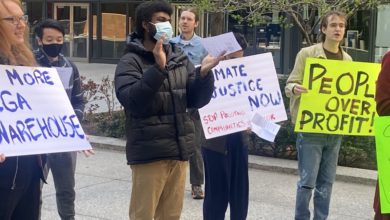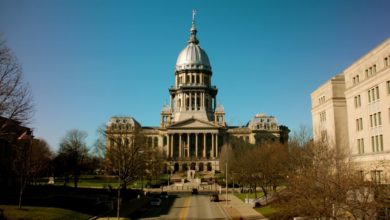The city of Chicago is slated to close four of its 12 mental health facilities by April 7. The move will impact 2,000 mental patients that depend on these clinics for stability in their lives.
City officials claim that the cause of these closures is a $1.2 million cut in state funding. All of the facilities affected are on Chicago’s south side, in African American communities that are some of the most oppressed in the city. The four clinics that are slated to close are Woodlawn, Back of the Yards, Beverly/Morgan Park and Greater Grand/Mid-South.
Even though patients have been told that they will be relocated to other centers, many of them still fear for their future. “A lot of people will not be able to make the transition, falling between the cracks and ending up in hospitals, jail or dead,” said Darryl Gumm, chairman of the Community Mental Health Board. (Chicago Tribune, February 18)
Mr. Gumm speaks from experience. In the early 1980s, when Ronald Reagan first took office, cuts in funding for mental health facilities resulted in many patients getting kicked out into the streets and becoming homeless. For many of those patients now at risk of meeting the same fate, their mental illness makes it impossible to find employment.
If too many outpatients have to travel too far to seek treatment, they will likely just stop their treatments. Some patients do not have the mental capacity to seek treatment on their own. Many of the mentally ill who live in the streets have limited awareness of their surroundings and are unable to cope with the challenges of living in the streets.
Protests took place Jan. 28 and Feb. 10 at the offices of Mayor Daley to oppose the closures. Protesters say the city has the funds to keep these facilities open, but government officials would just rather spend it elsewhere.
It is also believed that the clinics are being closed because they are on the spot where the city wants to hold the 2016 Olympics. Woodlawn patient William Robinson said, “They’re closing everything on the Southeast Side. They’re making room for the Olympics at our expense.” (Medill Reports Chicago, Jan 29)
Chicago, like other cities before it, will do what whatever it takes to “beautify” the city to make it look good in the eyes of the rest of the world during the Olympics. A parallel effort to gentrify the area surrounding the mental health clinics is also under way. The same corporate media that relentlessly hurled accusations of human rights violations at China as it prepared for the Olympics is silent on what is taking place in Chicago.
For businesses, the Olympics are a tremendous profit opportunity. The city’s priority becomes attracting people into the city in order to bring in massive revenues. Elected officials will not let social needs such as education, medical facilities or low-income housing interfere with such a multi-million-dollar opportunity.
The struggle to put people over profits is a fundamental feature of capitalism. Any gains must be vigilantly guarded so that they are not reversed. The battle now unfolding in Chicago is not just about health care but also about human dignity.
“I used to not care and never loved myself,” Linda Hatcher, a bipolar disorder patient at the Woodlawn Center, told protesters at Chicago’s City Hall. “But since I have been coming to this center, I am not ashamed of myself.” (Chicago Tribune, Feb. 18)





